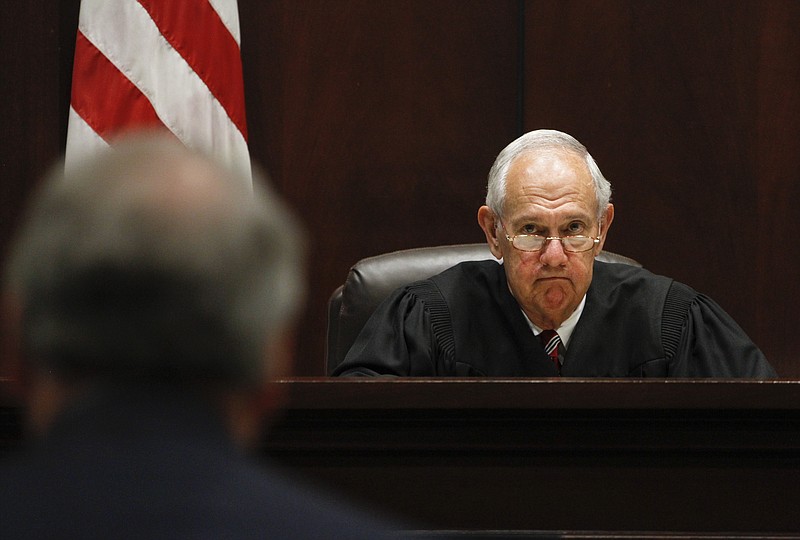NASHVILLE -- The Tennessee Supreme Court has set aside last March's decision by a Hamilton County judge who ruled a 2011 state law capping certain personal injury damages at $750,000 is unconstitutional.
In their ruling dated Friday, justices said the case simply was not "ripe" enough, that is, the lawsuit had not proceeded far enough for a ruling on its constitutionality. They remanded the case back to Circuit Judge W. Neil Thomas.
The case involved Thomas' ruling on a $22 million-plus negligence lawsuit filed by Donald and Beverly Clark against several divisions of AT&T and one of its employees, Aimee Cain.
The couple sued as a result of an auto accident that injured Clark. In the suit, the couple also sought a ruling on the constitutionality of the state law that caps noneconomic damages at $750,000 for certain personal injury cases.
The suit also named then-Tennessee Attorney General Robert Cooper because of the constitutional issues raised to challenge the Tennessee Civil Justice Act of 2011, an initiative of Republican Gov. Bill Haslam.
Noneconomic damages apply in situations where there is pain and suffering, physical impairment, disfigurement or other similar circumstances.
In their opinion, justices noted they had dealt with a similar issue of "justiciability and ripeness" last summer in a criminal case.
"Ripeness requires a court to answer the question of whether the dispute has matured to the point that it warrants a judicial decision," the justices wrote in that prior criminal case decision. "[R]ipeness is peculiarly a question of timing. [I]ts basic rationale is to prevent the courts, through avoidance of premature adjudication, from entangling themselves in abstract disagreements."
They said the dispute had not matured to that level.
After the defendant filed a motion for partial summary judgment, Thomas earlier this year ruled that the cap was unconstitutional, although no decision had yet been made by the jury as to liability or any amount of damages. But Thomas said in the opinion that the push for partial summary judgment left him no choice but to rule on the constitutional questions raised.
In his ruling, Thomas drew on the history of jury trials going back to the 12th century and England's King Henry II, calling unfettered access to a fair jury trial a "fundamental right guaranteed" in the Constitution.
The $750,000 cap is raised to $1 million in the case of catastrophic injury, like partial paralysis or severe burns.
But in most cases, though a jury can award any amount of noneconomic damages it wants, the actual payout can never exceed $750,000 under the current law.
Thomas wrote that "any attempt to limit the jury's rendition of a damage verdict must be in conflict with the right to jury trial."
He also addressed arguments from proponents of the law that juries are likely to award excessive damages of millions of dollars to plaintiffs. Proponents had argued that by capping damages for pain and suffering, the law promoted and protected economic development.
But Thomas wrote he reviewed legislative proceedings leading up to the passing of the statute and found "no study or data which supports any conclusion that jury verdicts in Tennessee are excessive or not supported by the evidence."
Contact Andy Sher at asher@timesfreepress.com, 615-255-0550 or via twitter at AndySher1.
